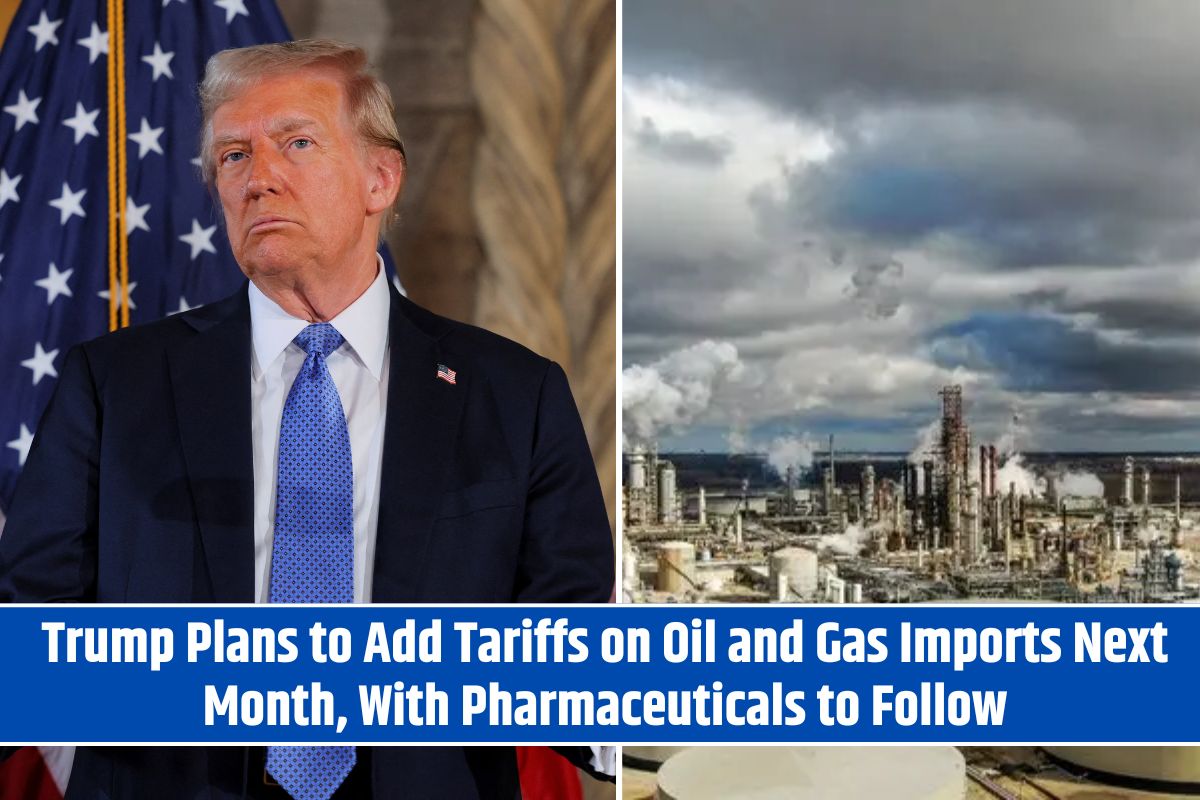On Friday, President Donald Trump announced plans to impose new tariffs on a wide range of imports, including oil, gas, CHIP semiconductor technology, pharmaceuticals, and metals like steel and aluminum. The tariffs will take effect gradually, with oil and gas tariffs expected to be implemented by February 18, while others, such as those on copper and medicine, will follow at later dates.
Details of the Tariff Announcement
- Oil and Gas: Tariffs on oil and gas imports will be introduced around February 18, according to the president. He did not specify which countries would be affected.
- CHIP Semiconductor Technology: Although a timeline was not provided, semiconductors will be subject to tariffs as part of Trump’s broader plan to address reliance on foreign technology.
- Pharmaceuticals: The president stated that tariffs will be imposed on all forms of medicine, potentially impacting both prescription drugs and over-the-counter products.
- Metals: Tariffs on steel, aluminum, and copper will also be expanded. The copper tariffs, however, will take more time to implement, Trump added.
Tariffs on Mexico and Canada Confirmed
As part of the broader tariff strategy, White House press secretary Karoline Leavitt confirmed that the U.S. will be imposing 25% tariffs on imports from both Mexico and Canada. The move follows Trump’s long-standing stance on renegotiating trade terms with the U.S.’s closest neighbors.
“The time for negotiation has passed,” Trump said, emphasizing that the new tariffs will stack on top of any existing tariffs already in place.
Economic Implications of New Tariffs
Potential Impact on U.S. Consumers
Economic experts warn that the new tariffs could lead to slower economic growth and contribute to rising inflation. With companies facing higher import costs, they are likely to pass these costs on to consumers through increased prices on goods like fuel, electronics, cars, and pharmaceuticals.
Key concerns include:
- Higher fuel prices: Tariffs on oil and gas imports could drive up prices at the pump, affecting transportation and logistics industries.
- Increased costs of electronics: Semiconductor tariffs may raise prices on consumer goods like smartphones, computers, and cars.
- Rising drug prices: Tariffs on pharmaceuticals could make healthcare and prescription medications more expensive for American families.
Broader Context: Trump’s Trade War Strategy
The latest wave of tariffs fits into Trump’s broader trade policy, which aims to reduce reliance on foreign imports and bring manufacturing and production back to the U.S. Over the years, Trump has pursued aggressive tariffs on China, Europe, and other trade partners, arguing that they are necessary to protect American industries.
However, critics argue that these tariffs may hurt U.S. businesses and consumers more than foreign economies, as they increase production costs domestically.
Reaction from Experts and Economists
Many economists and trade analysts expressed concern about the wide-ranging nature of the new tariffs:
- Rising inflation risks: The added costs of tariffs could contribute to inflation, which has already been a concern due to supply chain disruptions.
- Impact on U.S. industries: Tariffs on imported metals like steel, aluminum, and copper could raise production costs for key sectors, including construction, automotive, and electronics manufacturing.
- Healthcare burden: Tariffs on pharmaceuticals may increase drug prices, further straining consumers already grappling with healthcare costs.
The Trump administration’s decision to impose new tariffs on critical imports marks another escalation in the president’s protectionist trade policies. While the move is intended to protect American industries, it is likely to trigger price hikes for consumers and further complicate trade relations with key partners like Mexico and Canada. As the tariffs take effect, their long-term impact on the U.S. economy, inflation, and international trade will be closely monitored.
